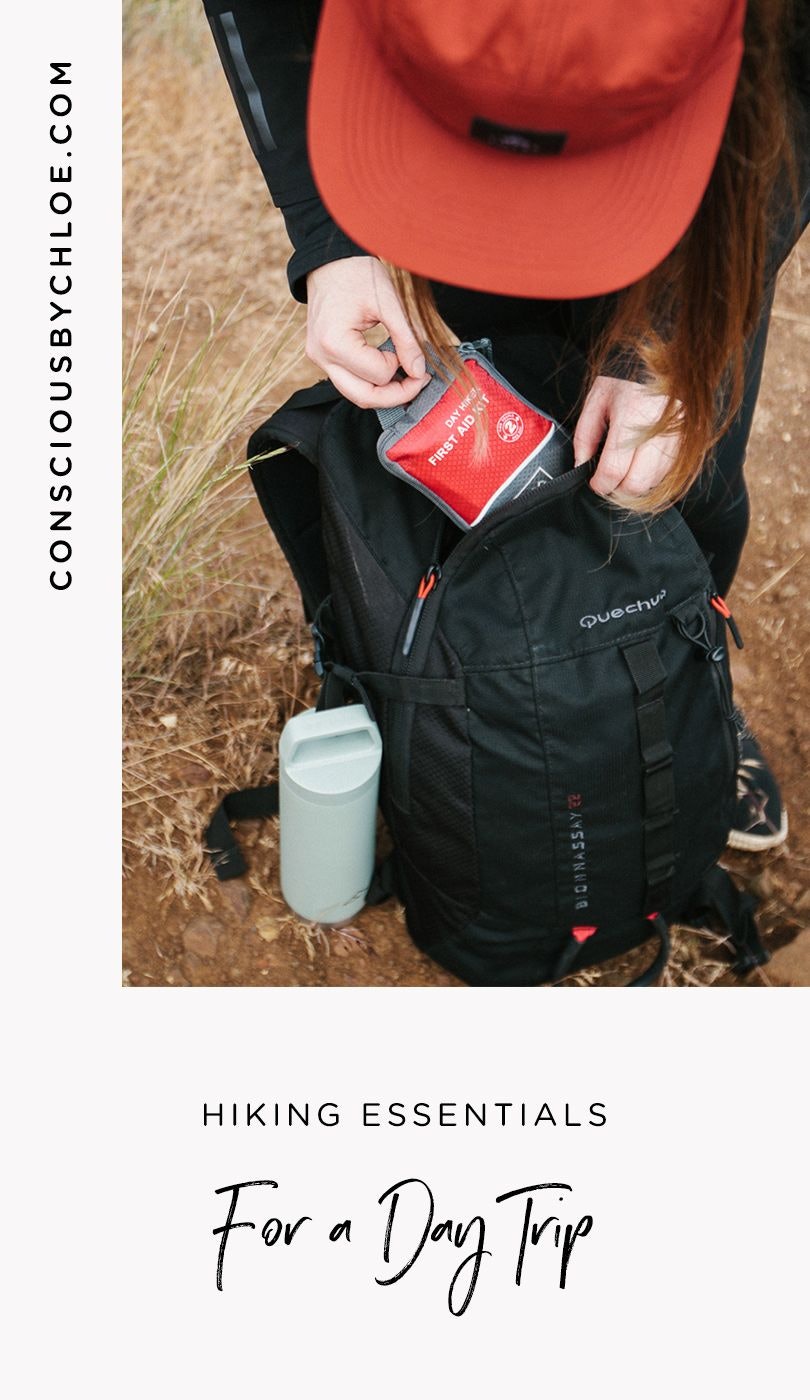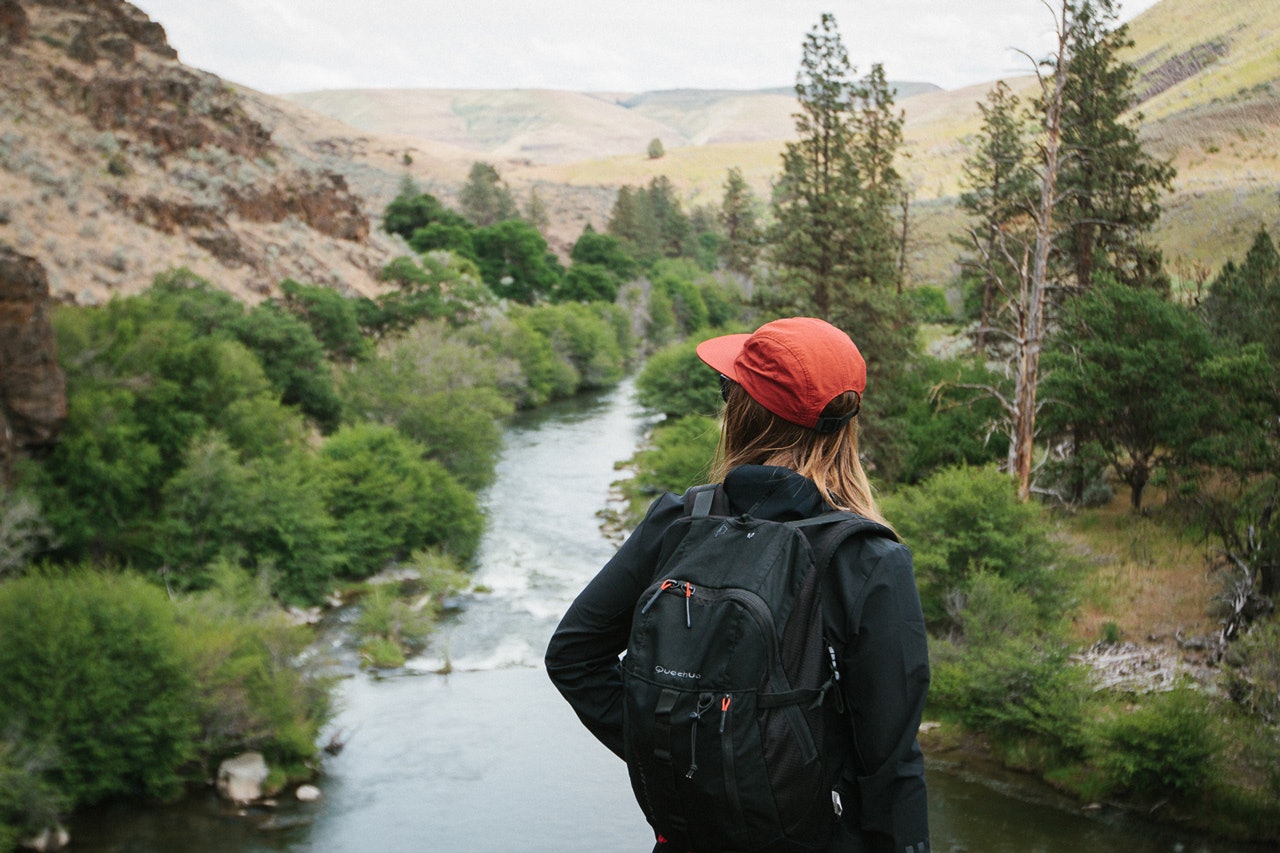
Over the past few weeks, I've had the chance to go on short hikes alone, or with friends. On a couple occasions, people have shared their surprise about the fact that I carry a backpack and a first-aid kit.
It's only natural to me, just like I wouldn't drive without my seatbelt on. But it's not always been the case. It's only after I attended a mountain safety workshop and had a couple misadventures myself that I really started writing my own backpacking checklist.
Now, whether it's only for a short walk in Portland's amazing Forest Park or for a steeper hike in the Columbia gorge, I always make sure I cover the following 10 essential aspects, for my safety, for my comfort and for the environment.
1. Navigation
- Map
- Compass
I have to admit that I am totally guilty of only bringing my phone with me and a screen shot of my route. Don't be like me, and do the right thing! Get a map (and a protective case), a compass, and learn the basics of navigation.
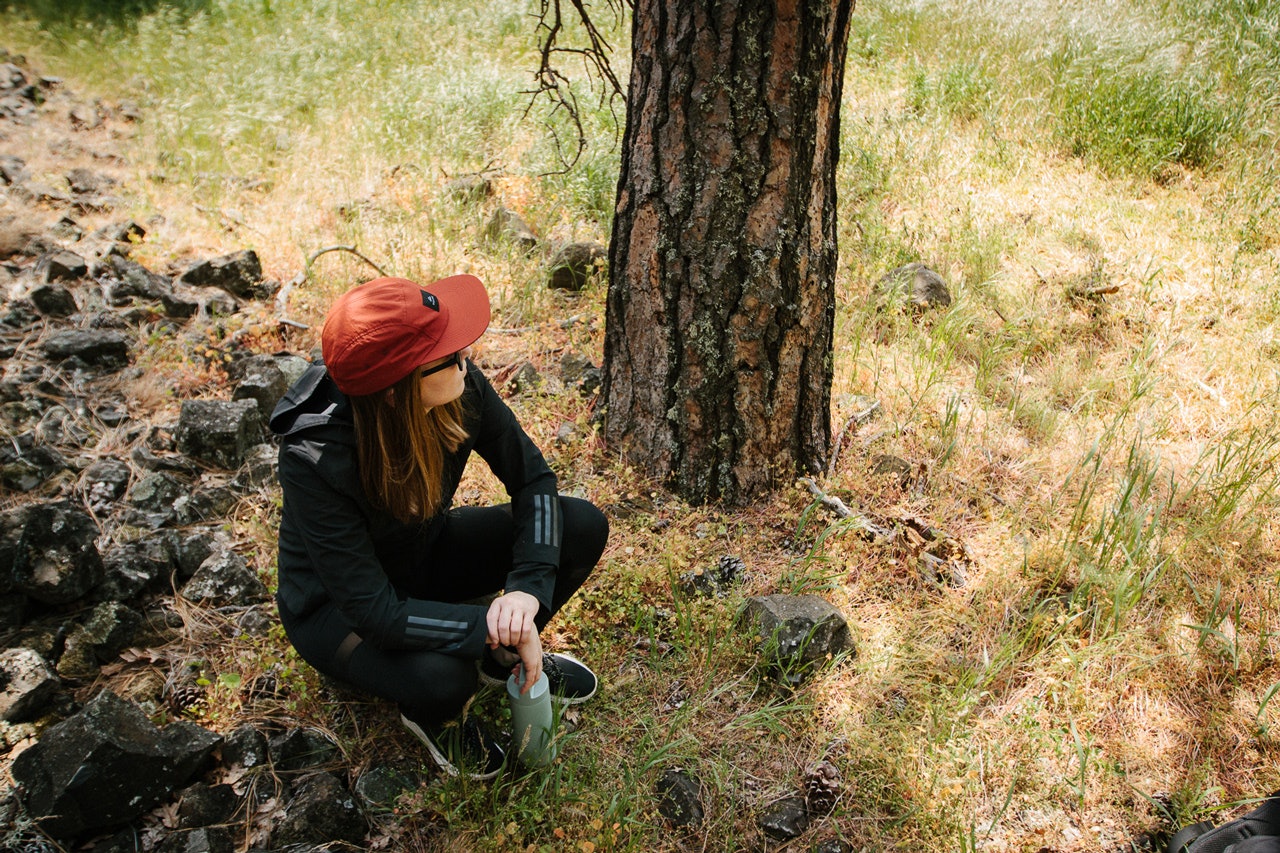
2. Protection
My skin hates the sun, so you'll never see me out without either long sleeves or a thick coat of sunscreen, and a hat on my head.
As for insulation, I usually wear a base layer, a hoodie, a pair of leggings, and a pair of hiking socks, and keep a waterproof jacket and a puffer jacket in my backpack.
4. Light & Sound
No matter how early I leave or how short my hike will be, there's always a headlamp in my bag. I once had to snowshoe in the dark, it won't happen to me ever again! A whistle is also a cheap and efficient way to let people know where you are should you get lost.
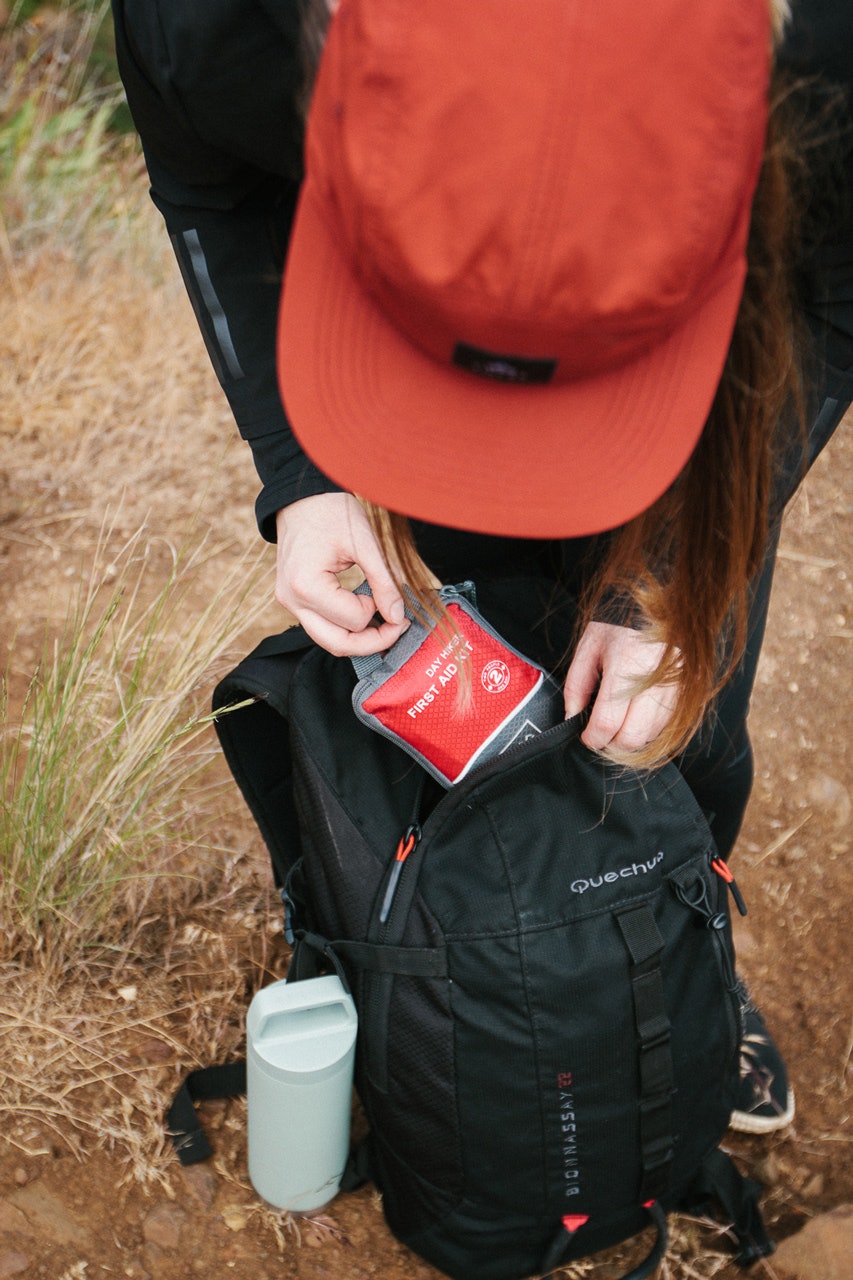
5. First-aid supplies
I got my first-aid kit after a preparedness workshop. It proved to be pretty useful very quickly, even if it was just to help a friend who had a stomach ache during a short car ride.
I added an emergency blanket to my kit. They're very lightweight, cheap and efficient, so get a bunch of these and put them everywhere, in your backpack, in your car, in your home!
6. Fire
- A lighter or matches in a waterproof container
I just learned how to start a fire. We never light fires during our camping trips because we feel it's safer to cook with a gas backpacking stove, but they can save your life in case of an emergency.
7. Tool Kit
- Knife or multi-tool
I usually have a knife or shears for foraging, but a multi-tool could be pretty useful under unexpected circumstances.
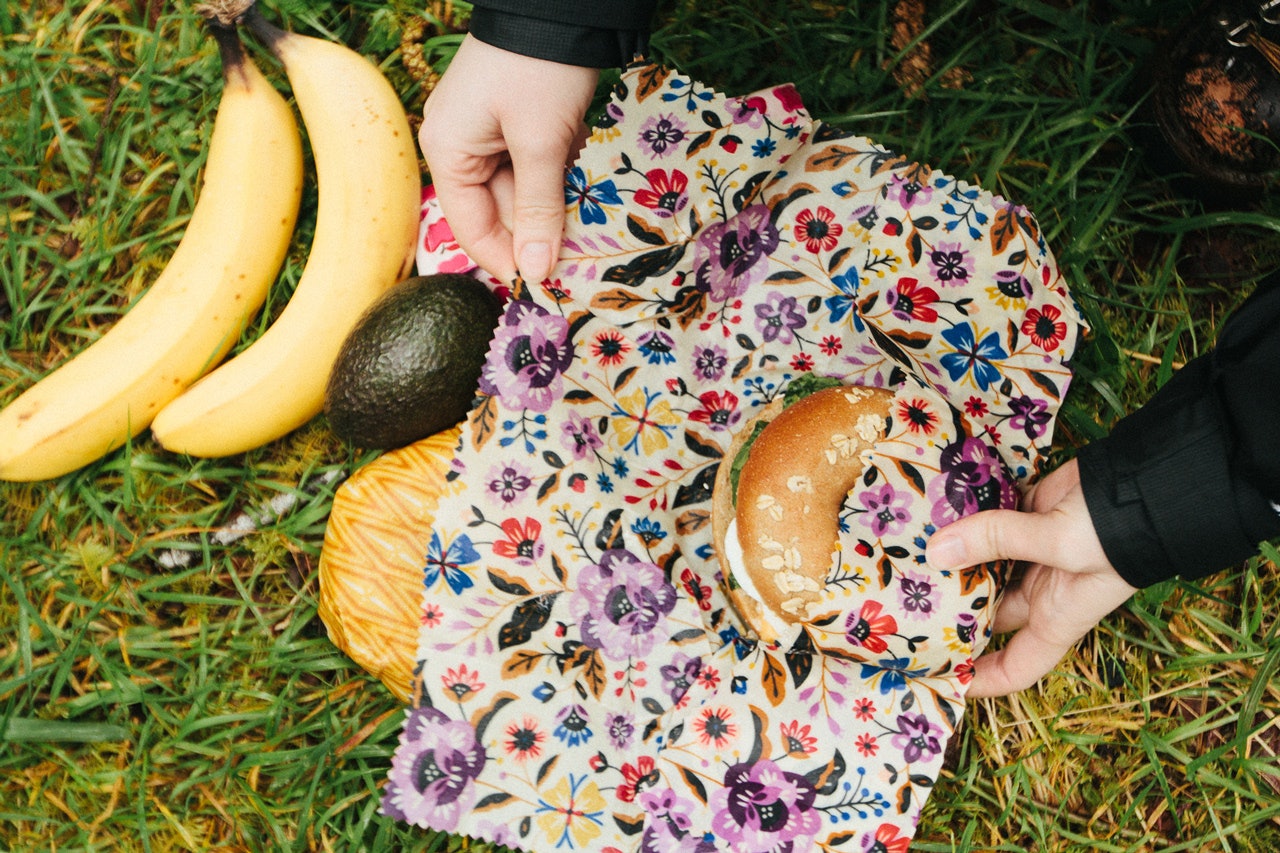
The reusable food wrap pictured above was gifted to me by LilyBee Wrap.
8. Nutrition
I like to pack my supplies in sealed pouches so that they do not spill or attract wildlife but I sometimes just put snacks in a cloth bag and wrap a sandwich in reusable food wrap.
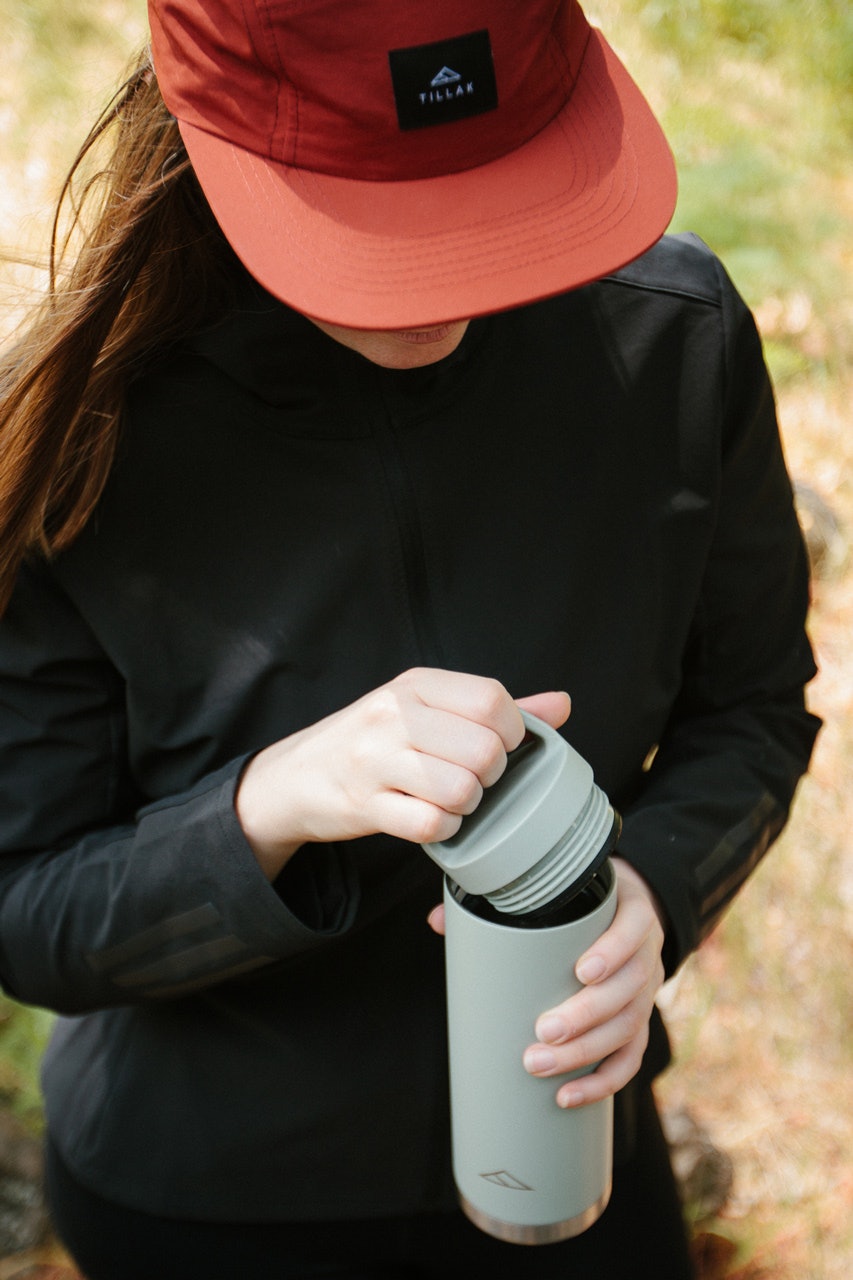
9. Hydration
I usually like bottles with a sport spout and a handle.
10. Plogging
- Trash bag
- Gloves
Have you ever heard of plogging? It's a Swedish trend which consists in picking up trash as you exercise outdoors.
I have increasingly gotten very mad as I kept seeing trash during my hikes, so I started packing a trash bag and a pair of gloves to pick up litter as I go. It will not save the world, but it will make me happier and make the trail nicer for the next hikers. Also, following the "broken windows theory", I want to imagine that a pristine trail will be less likely to be trashed that one that's already covered in litter.
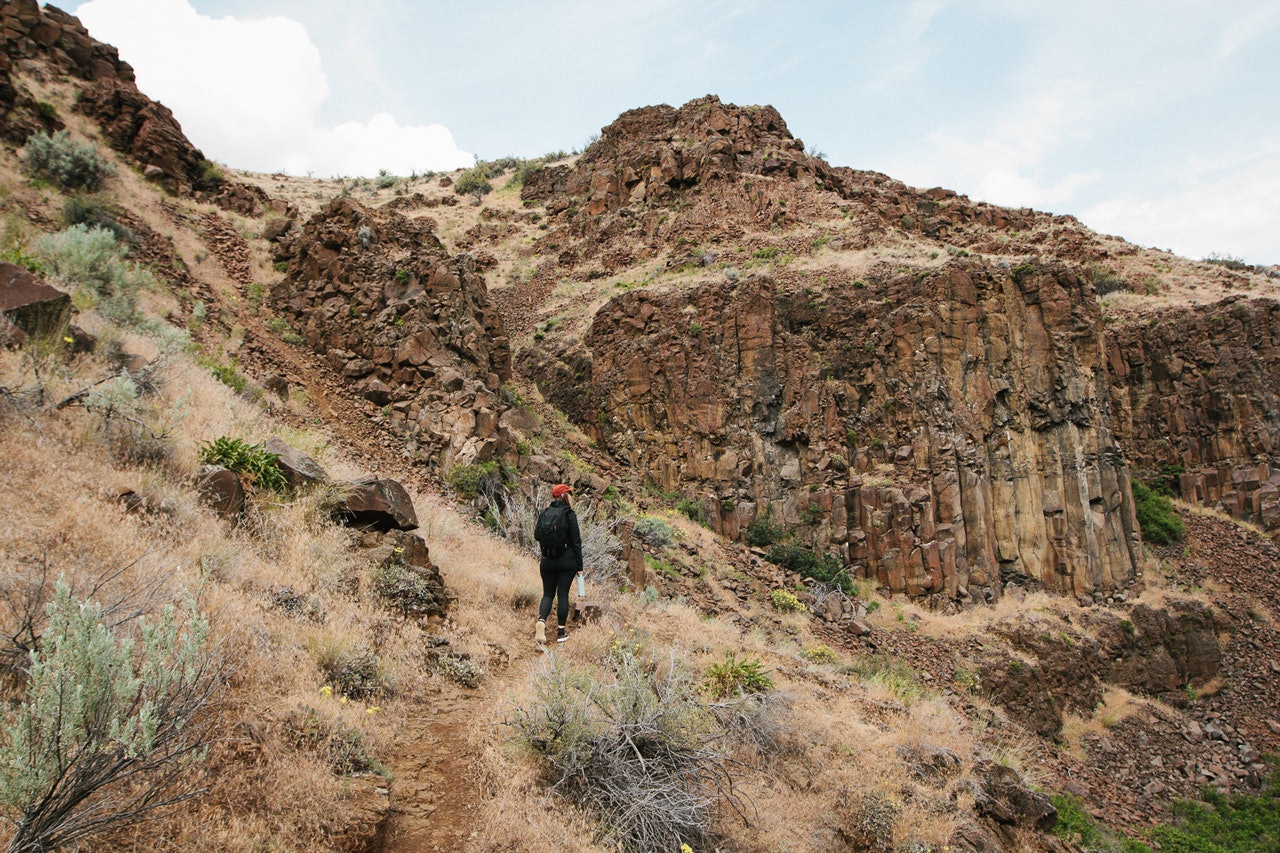
Most of these items never leave my backpack, which never leaves my car. That way I'm always ready to go on a short hike and I have an emergency kit with me at all times!
Here's a link to my Day Hiking Eseentials.
Women in the Outdoors
Now talking about women and the outdoors, I wanted to share a couple people and resources that have been inspiring me lately to get more outside:
- An interview of Jenny Bruso, of Unlikely Hikers, by Range
- A video - Wandering Thru by Julie A Hotz
- A podcast - She Explores
